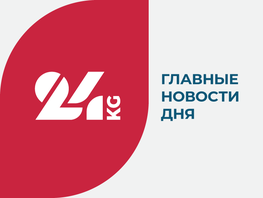The election campaign in
It is clear: in a motley team of presidential candidates, one can count on the fingers the obvious leaders of the upcoming race. 24.kg news agency talked with Professor Zainidin Kurmanov on the topics: what kind of candidate he or she should be, what a Kyrgyz politician sorely lacks and what is political leadership in general.
— Zainidin Karpekovich, you were probably interested in the leadership doctrine and have studied it?
— Yes. It appeared in ancient
— Analogies immediately come in head but one can not name a politician with these qualities at once. As a rule, we call leaders even those who simply occupy some position...
— We observe leadership in different spheres — business, sport, science... It should not be confused with political leadership. This is a different level of responsibility and tasks.
Not all successful businessmen, athletes or writers can be successful politicians, state leaders. There are very few such stories in the history.
Political leaders head the parties, movements and the state. Quite different skills and requirements required by the historical moment are needed there. For example, after the reign of Mikhail Gorbachev, who appeared before the Soviet people as a leader-reformer, Boris Yeltsin came to power, who was taken as a renegade leader or even an apostate, grave-digger of socialism. And then the Russian society had a request for the leader-chief, the father of the nation. Vladimir Putin met such image.
The notions «governance» and «leadership» often do not coincide. The leader may not use authority. In this case, he will not be a leader. And the leader may not occupy a leading position, but remain a leader, including an informal one, for example- Mahatma Gandhi in the struggle for independence of
— What type of political leadership is most in demand?
— With regard to subordinates, there are two types of leaders- authoritarian and democratic. As for the scale of activity — there are national, class, party, regional, local leaders. Leadership can be traditional, charismatic and bureaucratic.
The traditional leadership is when a leader is taken without an alternative — transfer of power by inheritance, to a successor.
Bureaucratic one is the leadership of a post, an office.
The charismatic one depends on the personal qualities of a leader and his ability to lead the masses. It is supported by blind faith and devotion, reverence. However charismatic politicians easily transform into dictators and are of little use for routine and hard work.
There are also other types, for example, leader-standard-bearer. The head of the coalition «Georgian Dream» Bidzina Ivanishvili, who defeated in
There is also leader-servant, leader-merchant, leader-fireman. The latter is focused on the most pressing, acute problems, and his actions depend on the specific situation. All without exception Kyrgyz prime ministers can be called leaders-firemen.
— Only leadership without political convictions is observed in
— Our leaders should be criticized not for lack of charisma, but for the lack of political convictions. With their help, the leader seeks to convince his supporters. The stronger the leader’s belief, the more likely they will influence his leadership.
— What kind of leader does
— Leader-statesman is in demand in our country. The role of the father — founder of the sovereign Kyrgyz state is still vacant. It could be the first president Askar Akaev, but he was expelled, the second one, too. The history will give an assessment to the third.
Therefore, we are talking about the fathers — founders of the Kyrgyz statehood — A. Sydykov, I. Aidarbekov, I. Arabaev and Y. Abdrakhmanov...
The current candidates have a chance to take the place of the father-founder of the
There is also a deficit of leaders- standard-bearers, beacon leaders, able to take the country out of the crisis and make a breakthrough into the future. There are two candidates for this role — Temir Sariev and Omurbek Babanov.
Temir Sariev is certainly an authoritative leader. He is skilled, able and competent in his business. His professionalism is high. According to experts, he is wise, fair, responsible, pragmatic, moderately democratic and charismatic. He is optimist. He is not necessarily loved, but respected. He, without a doubt, can be called a leader-statesman.
Temir Sariev’s platform, called «Kyrgyz Dream», is specific and adapted to the reality of
Omurbek Babanov is a charismatic leader. No one knows why, but everyone loves this energetic young man. He is smiling, attractive, makes a good impression. His manners are the key to his success.
Omurbek Babanov made an inspiring and colorful speech at Kurultai. But experts immediately branded him as a dreamer.
— And what about Sooronbay Jeenbekov? What type of leader is he?
— He can be qualified as leader-follower, continuer, servant. He is a strong business executive, shows the focus on the needs and demands of voters and adherents.
However, as a leader-follower, he has all the responsibility for the activities of his party. Experts criticize him for lack of charisma, but, maybe, it’s even for the better?
All these characteristics, of course, are conditional. All candidates have chances. They need only feel confident in their own abilities, show hidden talents, and most importantly — be able to take responsibility for actions.





